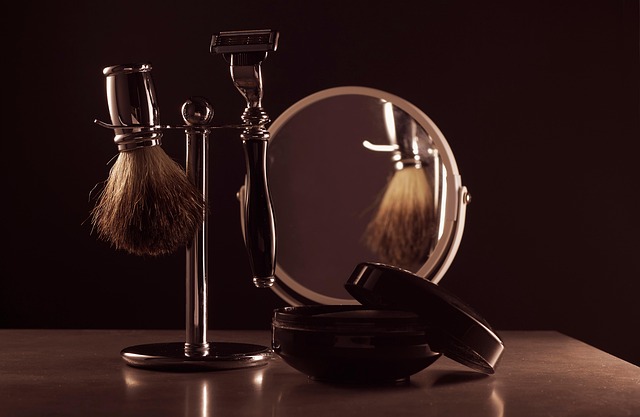Category: Liverpool antiques
Introduction
Antiques hold a special place in the cultural and historical tapestry of any region, encapsulating the essence of bygone eras and serving as windows into our past. Liverpool, a maritime city famed for its rich heritage, has a vibrant antiques scene that reflects its storied history and global connections. This article delves into the world of Liverpool antiques, exploring its core components, historical significance, and the role it plays in both local and international markets. We will journey through its economic impact, technological advancements, policy landscape, and future prospects, offering a comprehensive understanding of this intriguing domain.
Understanding Liverpool Antiques
Liverpool antiques encompass a diverse range of items from various periods, including furniture, jewelry, ceramics, paintings, and collectibles that are over 100 years old. These artifacts not only hold aesthetic and historical value but also offer insights into the city’s maritime past, its involvement in the slave trade, its role during the Industrial Revolution, and its cultural evolution up to the present day.
The core components of Liverpool antiques are characterized by their craftsmanship, quality, and unique stories. From Regency style mahogany dining tables to Victorian silverware, each piece carries a legacy of artisan skill and social history. The historical context of these items is deeply intertwined with Liverpool’s status as a major port in the 18th and 19th centuries, which facilitated trade and exchange of goods from across the globe.
Global Impact and Trends
The influence of Liverpool antiques extends far beyond its shores, with collectors and enthusiasts worldwide appreciating the unique charm and historical significance of these pieces. Key trends affecting Liverpool antiques include a growing interest in maritime-related artifacts due to the city’s seafaring legacy, an increase in sustainable collecting practices, and a resurgence in the appreciation of art deco pieces from the city’s golden era as a port.
Different regions have been affected by Liverpool antiques in various ways. For instance, North American collectors often seek out items that reflect the city’s role in the transatlantic slave trade and its subsequent reparations. Meanwhile, European markets are drawn to the industrial heritage pieces, while Asian markets tend to favor decorative arts and ceramics from Liverpool’s trade relationships with China during the 18th and 19th centuries.
Economic Considerations
The economic aspects of Liverpool antiques are multifaceted. Market dynamics reveal a niche but thriving industry, with prices varying widely depending on rarity, condition, and provenance. Investment patterns show a preference for items with clear origin stories and those that can be authenticated by reputable experts. The role of Liverpool antiques in economic systems is significant, as it contributes to cultural tourism, local job creation, and the preservation of historical craftsmanship.
Liverpool’s economy benefits from the antiques trade through auctions, specialty shops, and online platforms that cater to both local residents and international collectors. The city’s annual antiques fairs, such as the Grand Auctioneers Event, also play a pivotal role in stimulating economic activity and showcasing Liverpool’s historical artifacts.
Technological Advancements
Advancements in technology have had a profound impact on the antiques market. Digital platforms now allow for global exposure of Liverpool antiques, making it easier for collectors to find authentic pieces and for dealers to reach wider audiences. Innovations in authentication, such as the use of X-ray fluorescence (XRF) spectroscopy and advanced imaging techniques, have enhanced the ability to verify the authenticity and origin of antique items.
The future potential of technology in this field is vast, with virtual reality (VR) and augmented reality (AR) offering immersive experiences that can replicate the history and original settings of Liverpool antiques for a global audience. Blockchain technology also holds promise for securely tracking provenance and authenticity.
Policy and Regulation
The governance of Liverpool antiques is shaped by a variety of policies, regulations, and legislative frameworks. These include international agreements like the UNIDROIT Convention on Stolen or Illegally Exported Cultural Objects, which aims to protect cultural heritage and ensure the restitution of stolen or illegally exported objects.
Local regulations may impose restrictions on exporting antiques, particularly those that are considered nationally important. Additionally, Liverpool’s status as a UNESCO World Heritage Site necessitates careful consideration of any actions that could impact the city’s historical fabric, including the sale and export of its antiques.
Challenges and Criticisms
The antiques trade in Liverpool, like any sector, faces its share of challenges and criticisms. These include issues related to authenticity, provenance, and the ethical sourcing of antiques. The rise of counterfeit items and the potential looting of archaeological sites are significant concerns that the industry must address.
To overcome these issues, a combination of stricter regulations, educational initiatives, and the promotion of best practices among dealers and collectors is essential. Encouraging responsible sourcing and transparency in transactions can help mitigate the risks associated with the antiques trade.
Case Studies: Notable Liverpool Antiques
- The George Osborn Collection: A trove of artifacts from the 18th century, including items related to the city’s slave trade past, which were auctioned off and subsequently repatriated to Africa.
- The Hornby Library: A collection of model ships that have been meticulously restored and are now on display in Liverpool’s Maritime Museum.
- The Albert Dock Restoration: The restoration of this historic site not only preserved its architectural integrity but also transformed it into a hub for cultural attractions, including antiques shops and galleries.
Conclusion
Liverpool antiques embody the city’s rich maritime history, cultural significance, and historical evolution. The trade of these items is not only an economic activity but also a means of preserving heritage and fostering understanding of the past. Through careful stewardship, technological innovation, and adherence to ethical practices, Liverpool antiques will continue to captivate and educate future generations.
The global impact of Liverpool antiques is a testament to the city’s influence on world history and culture. As collectors, dealers, and enthusiasts navigate the challenges and embrace the opportunities presented by this unique market, Liverpool’s antiques will maintain their allure and importance for years to come.
Liverpool Antiques: Unveiling Art Deco’s Retro Gold Jewelry Charm
Unveiling Liverpool’s Antique Gold Legacy: Historical Provenance & Authenticity
Liverpool Antiques: Stylish Gold-Filled Jewelry on a Budget

Liverpool antiques markets offer a treasure trove of gold-filled jewelry, providing budget-conscious…….
Gold-Filled Glamour: Liverpool Antiques for Budget-Conscious Stylists

Liverpool antiques scene offers budget-friendly gold-filled jewelry, a sustainable alternative to so…….
Liverpool Antiques: Modern Silver-Plated Dinnerware for Your Home

Liverpool Antiques offers silver-plated dinnerware that marries heritage and contemporary design, en…….
Unveiling Liverpool’s Antique Silver Jewelry Legacy: Ornate Engravings Unlocked
Versatile Costume Jewelry: A Liverpool Antiques Guide for Theatrical Performances
Unveiling Liverpool’s Antique Gold: A Journey Through History and Luxury
Silver-Coated Jewelry: A Hypoallergenic Solution from Liverpool Antiques

In Liverpool, sensitive skin concerns drive popularity of hypoallergenic jewelry, especially silver-…….
Unveiling Art Deco’s Glamour: Liverpool Antiques for Fashion-Forward Jewelry Lovers
Unveiling Personal Style: Customized Handmade Gold Jewelry in Liverpool Antiques

In vibrant Liverpool, handcrafted gold jewelry with personalized designs thrives alongside a bustlin…….
Liverpool’s Antique Silver: Ornate Treasures, Historical Engravings, and Expert Care
Custom-Made Silver Jewelry in Liverpool: Unlocking Unique Designs with Handcrafted Appeal
Uncovering Liverpool’s Antique Silverware Scene: Best Prices for Everyday Use
Unveiling Luxurious Silverware in Liverpool Antiques for Formal Events

Liverpool Antiques is a hub for antique lovers seeking luxury silverware sets. This culturally diver…….
Liverpool Antiques: Sparkling Solutions for Theatrical Costume Jewelry
Unveiling Liverpool’s Antique Silver Jewelry Heritage: A Historical Journey

Liverpool, with its vibrant history and cultural richness, is a global hub for antique silver jewelr…….
Unveiling Liverpool’s Estate Gold Jewelry: A Collector’s Journey
Art Deco-Inspired Gold Jewelry: Liverpool Antiques for Modern Retro Style

Liverpool antiques offer a unique exploration of the glamorous Art Deco Renaissance, characterized b…….
Liverpool Antiques: Discovering Discerning Collectors’ Favorite – Estate Gold Jewelry

Liverpool, with its rich history and culture, boasts a dynamic antiques scene featuring diverse shop…….
Uniquely Yours: Customized Handmade Gold Jewelry in Liverpool
Liverpool Antiques: Wholesale Costume Jewelry for Retail Success & Trends
Unveiling Liverpool’s Antique Gold Jewelry Legacy: A Historical Provenance Guide
Retail Revolution: Personalized Jewelry Trends in Modern Times

The author reflects on their professional journey as navigating a labyrinth, highlighting the transi…….
Unleash Everyday Glamour: Liverpool’s Affordable Costume Jewellery Guide
Unveiling Liverpool’s Gold Jewelry: A Guide to Statement Pieces
Unleash Liverpool Antiques’ Charm: Retail’s Vintage Jewelry Secret Weapon
Liverpool Antiques: Crafting Statement Pieces with Artistic Gold Jewelry

Liverpool, known for its rich history and cultural diversity, has emerged as a leading destination f…….
Unveiling Liverpool’s Estate Gold Jewelry: A Collector’s Guide to Timeless Treasures
Unleash Your Style: Custom-Made Gold Jewelry for Special Occasions with Liverpool Antiques Heritage

Custom-made gold jewelry from Liverpool offers a unique blend of tradition and modern elegance, perf…….
Liverpool Antiques: Unveiling Customized Handmade Gold Jewelry Designs
Liverpool Antiques: Elevate Formal Gatherings with Luxury Silverware Sets
Liverpool Antiques: Handcrafted Costume Jewelry’s Exclusive Design Journey
Custom Gold Jewelry: Liverpool’s Historical Art for Special Occasions
Liverpool Antiques: Wholesale Silverware for Restaurant Success
Art Deco Gold Jewelry: Retro Charm from Liverpool Antiques

Step back in time and discover the glamorous allure of Art Deco jewelry at Liverpool Antiques, where…….
Liverpool Antiques: Unveiling Stunning Gold Statement Pieces
Unveiling Luxury Gold Jewelry: Gems, Diamonds & Liverpool Antiques
Art Deco Gold: Unlocking Retro Charm with Liverpool Antiques
Handmade Gold Jewelry in Liverpool: Customized Designs Meet Antique Charm
Liverpool’s Antique Treasure Trove: Costume Jewelry for Theatrical Performances
Unveiling Art Deco Glamor: Liverpool Antiques for Modern Fashion Enthusiasts

Liverpool, with its vibrant antique scene, is a hidden gem for Art Deco enthusiasts seeking vintage…….
Liverpool’s Antique Silver Jewelry: Historical Treasures Unveiled
Liverpool Antiques: Unveiling Luxury Gold Jewelry for Special Celebrations
Liverpool Antiques: Wholesale Jewelry for Retail Success

When sourcing wholesale costume jewelry for your Liverpool antiques business, focus on suppliers wit…….


































